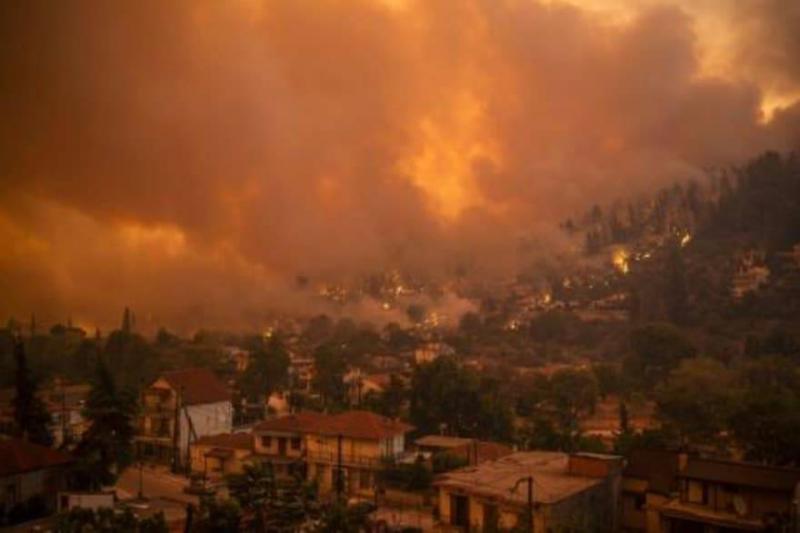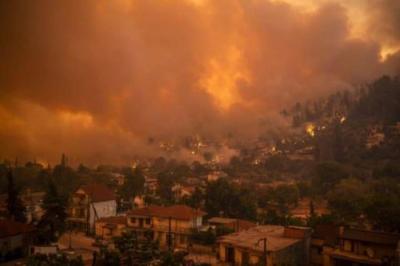An American scientific agency has expressed concern over the increasing natural phenomena linked to climate change after classifying July as the hottest month ever recorded on Earth. Rick Spinrad, the head of the National Oceanic and Atmospheric Administration, stated in a Friday release, "In a case like this, the ranking of first is the worst." He explained that "July is generally the hottest month of the year, but July 2021 surpassed that to become the hottest month ever recorded."
This "new record," according to Spinrad, adds to the "worrying and disturbing path" the planet is experiencing due to climate change, while wildfires, floods, and extreme weather phenomena are sweeping across various regions worldwide, from Siberia to Algeria, and from Turkey to California. The average surface temperature of the planet rose 0.01 degrees Celsius compared to the previous hottest July recorded in 2016, which had similar figures in 2019 and 2020, according to the agency. It was also noted to be 0.93 degrees Celsius above the 20th-century average. Data collection began 142 years ago.
Meanwhile, the European Climate Change Service (Copernicus) reported last week that the last month was the third hottest July on the planet. Some variation among climate agency data is considered normal. Climate scientist Zeke Hausfather from the Breakthrough Institute explained to AFP that the American agency has "limited coverage in the Arctic," which may account for the discrepancy.
He stated, "Regardless of where (July) ranks in the classification, the warming observed globally this summer is a clear result of climate change."
The announcement came days after climate experts at the United Nations released a new report confirming that humanity's responsibility for global warming is "unequivocal," and that climate change is occurring at a faster pace than feared. The report predicted global warming would reach 1.5 degrees Celsius above pre-industrial levels around 2030, threatening "unprecedented" new disasters on a planet experiencing consecutive heatwaves and floods. UN experts indicated that humans "have no choice but to significantly reduce greenhouse gas emissions" if they want to mitigate the impacts.
As global temperatures have risen 1.1 degrees Celsius to date, the world is witnessing the consequences, from wildfires ravaging parts of the American West, Greece, and Turkey, to floods that have submerged areas in Germany and China, and to record temperatures exceeding 50 degrees Celsius in Canada. The Paris Agreement, signed in 2015, recommended limiting warming to below two degrees Celsius, aiming for one and a half degrees Celsius if possible.
Calls for urgent action are intensifying as eyes turn to the Glasgow conference, where world leaders will convene in November for a climate summit (COP26). U.S. Senator Bernie Sanders tweeted, "We just witnessed the hottest month on our planet ever." He added, "I don't want future generations to look back at this moment and ask why we didn't do everything we could to combat climate change."




